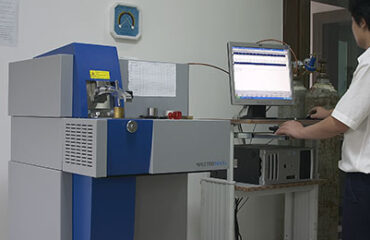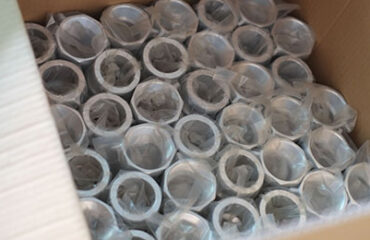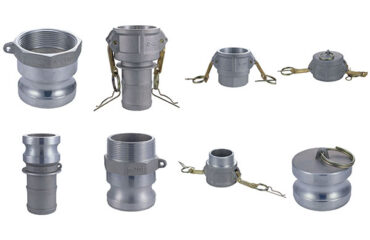Camlock couplings, known for their quick and secure connections, are essential components in various industries, including agriculture, manufacturing, and chemical processing. To meet diverse operational requirements, camlock couplings are available in a range of materials, each offering unique benefits. Here’s a breakdown of the most common types:

Aluminum Camlock Couplings
Lightweight yet durable, aluminum camlock couplings are ideal for applications where weight reduction is critical. They offer excellent corrosion resistance, making them suitable for use in environments where exposure to moisture or mild chemicals is a concern. Aluminum couplings are commonly used in fuel transfer, agriculture, and general-purpose fluid handling.
Stainless Steel Camlock Couplings
For industries demanding superior strength and corrosion resistance, stainless steel camlock couplings are the go-to choice. They excel in harsh environments, including those involving high temperatures, aggressive chemicals, or sanitary applications. Stainless steel couplings are widely used in food processing, pharmaceuticals, and chemical industries.
Polypropylene Camlock Couplings
When chemical resistance and affordability are top priorities, polypropylene camlock couplings shine. These lightweight, non-metallic couplings are perfect for handling corrosive substances, acids, and alkalis. They are commonly used in chemical transfer, water treatment, and other applications where metal couplings may not be suitable.
Brass Camlock Couplings
Brass camlock couplings offer a balance of strength, corrosion resistance, and conductivity. They are often used in applications involving fuel, oil, and water, as well as in environments where spark resistance is critical. Their durability and aesthetic appeal make them a popular choice in various industries.
Nylon Camlock Couplings
Nylon camlock couplings are lightweight, cost-effective, and resistant to many chemicals and abrasion. They are ideal for low-pressure applications and environments where weight and corrosion resistance are important factors. Nylon couplings are commonly used in agriculture, water distribution, and light industrial applications.
Carbon Steel Camlock Couplings
Known for their exceptional strength and durability, carbon steel camlock couplings are designed for heavy-duty applications. They are often used in oil and gas, construction, and industrial settings where high pressure and rugged conditions are prevalent. Proper coating or plating can enhance their corrosion resistance.
Why Choose the Right Material?
Selecting the appropriate camlock coupling material ensures optimal performance, longevity, and safety in your operations. Whether you need the lightweight versatility of aluminum, the rugged durability of stainless steel, or the chemical resistance of polypropylene, there’s a camlock coupling designed to meet your specific needs.



